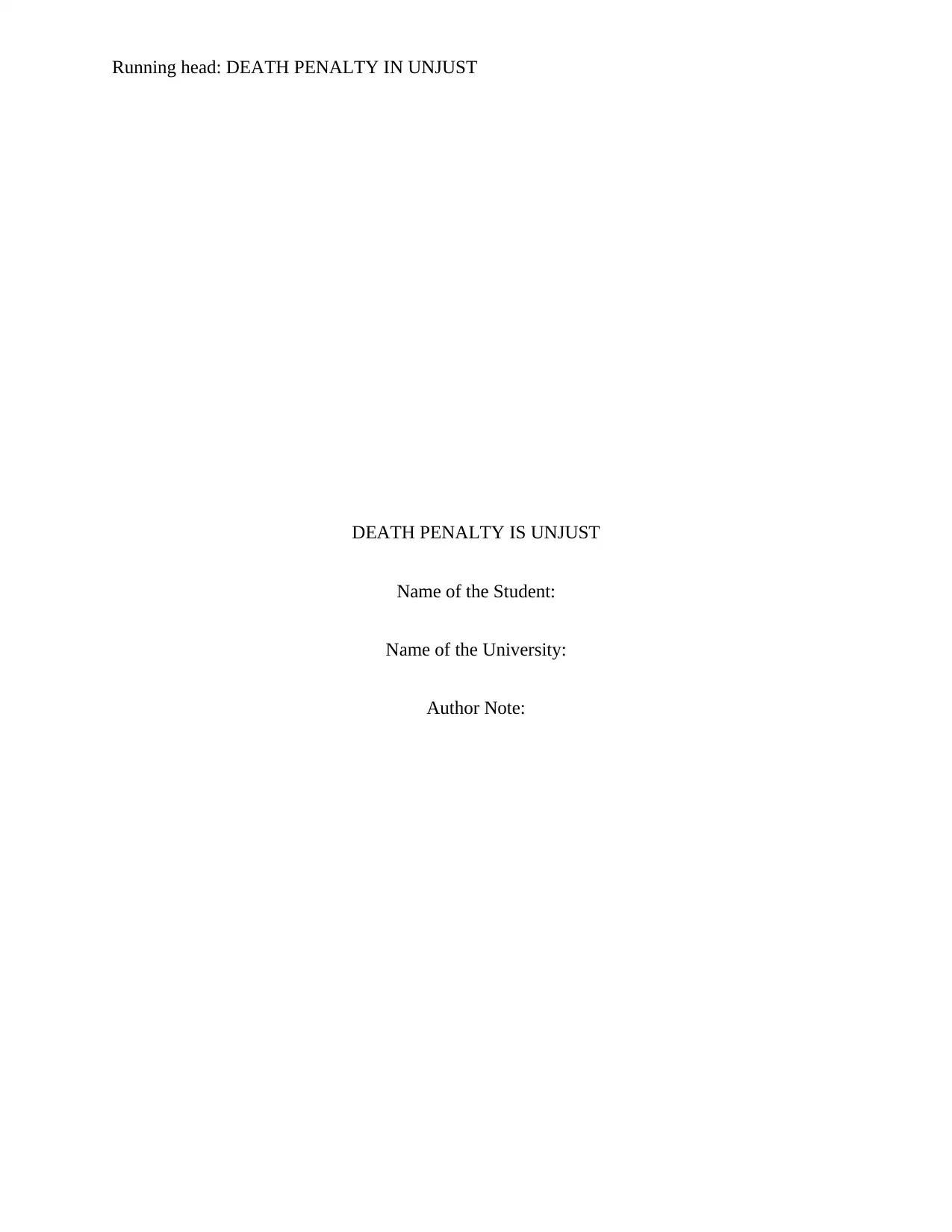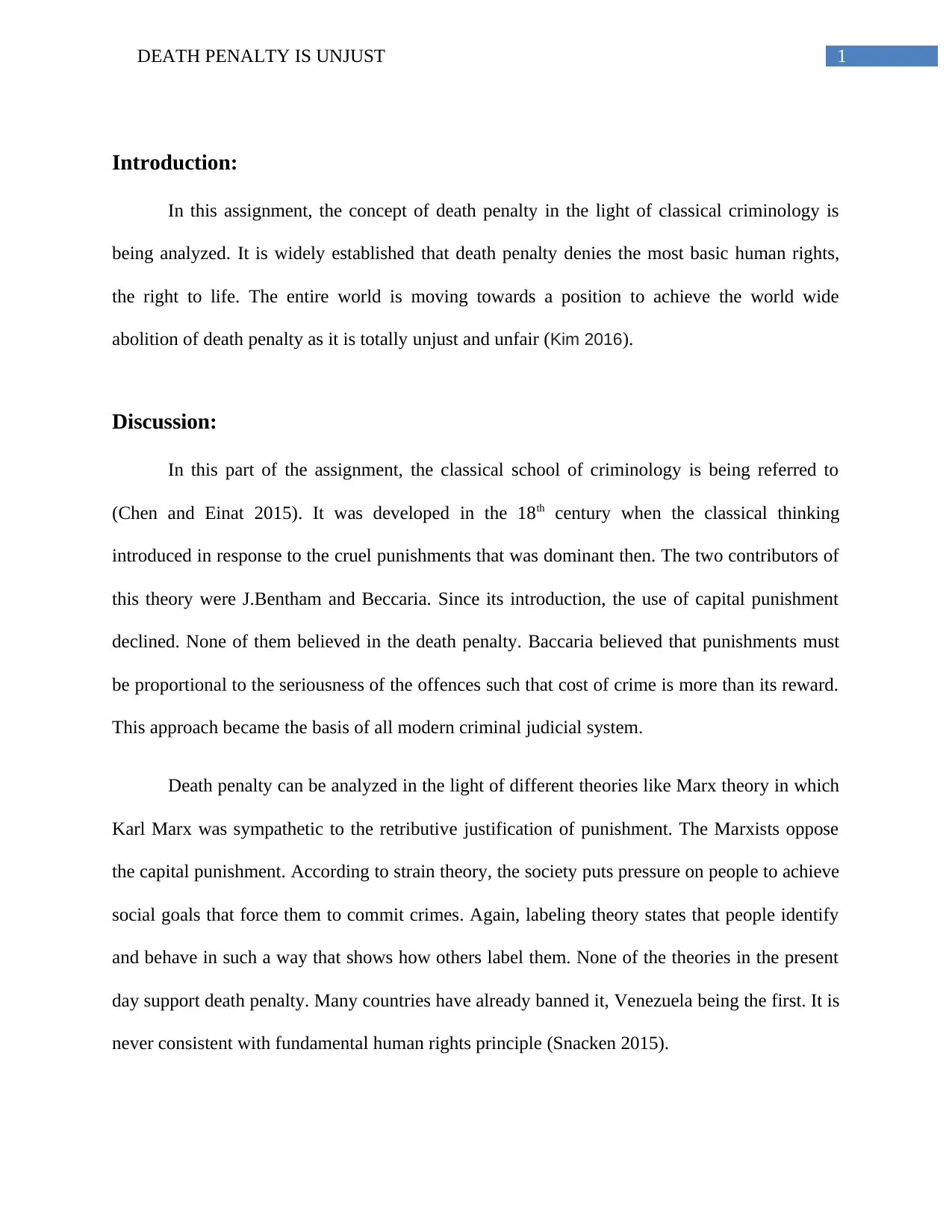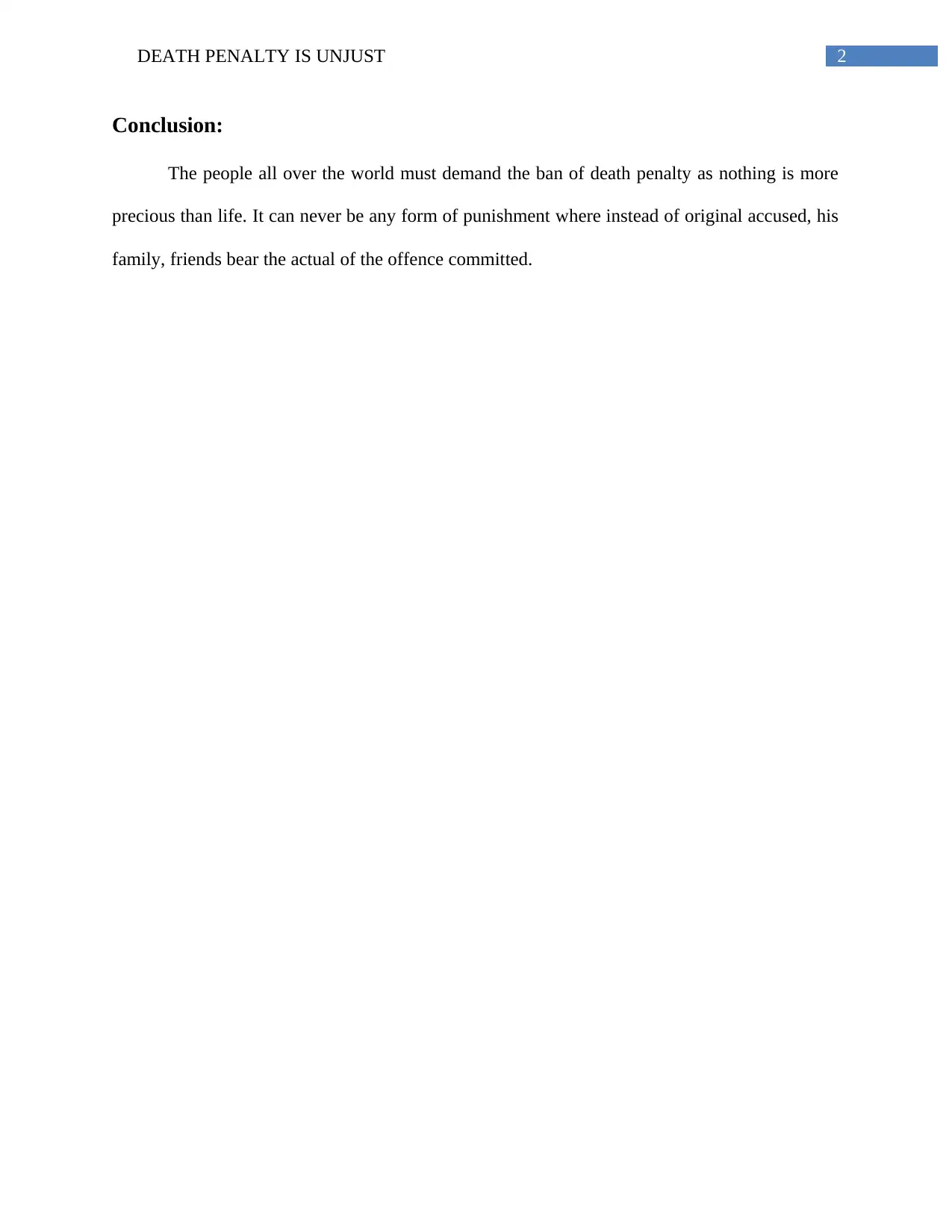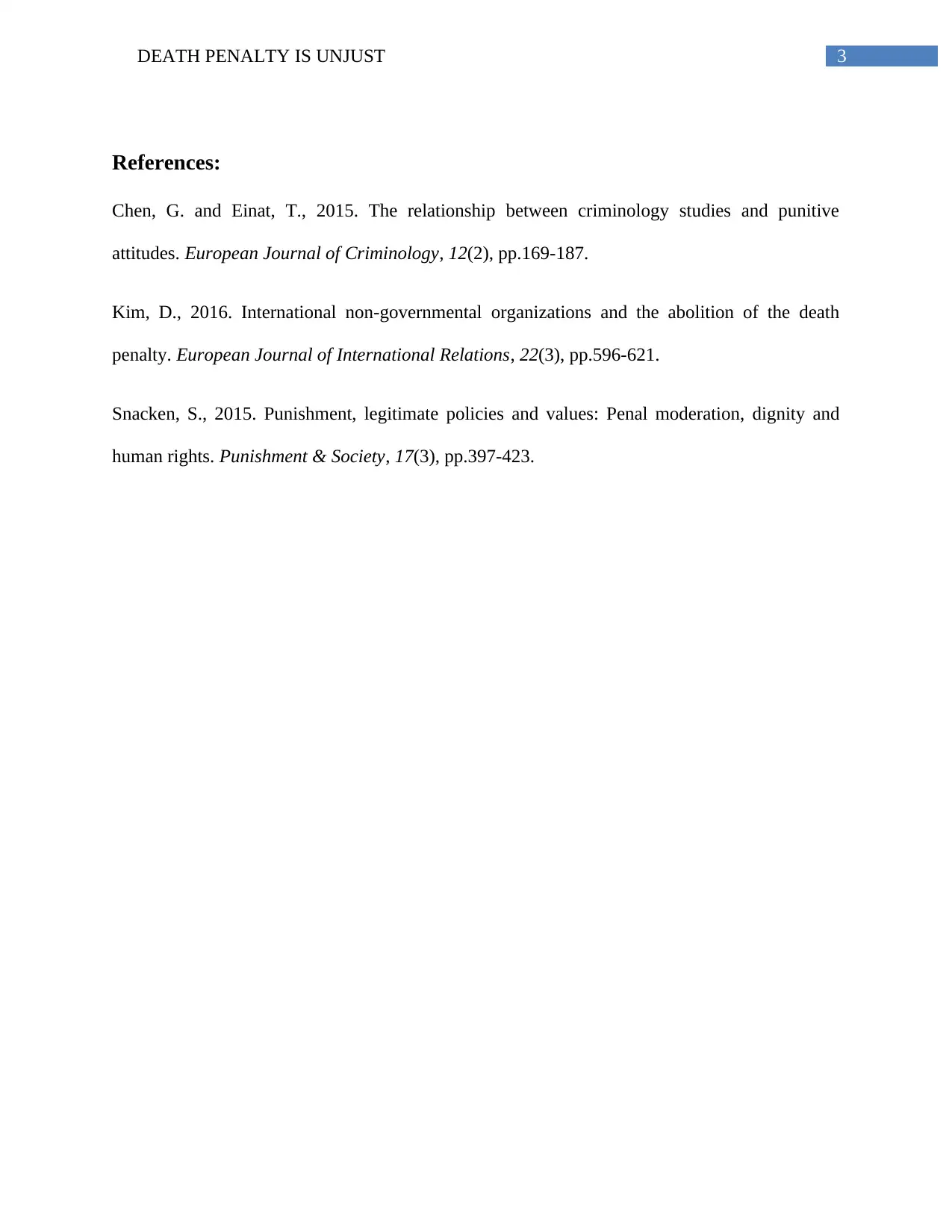The Death Penalty: A Classical Criminology Analysis and Critique
VerifiedAdded on 2023/04/20
|4
|481
|310
Essay
AI Summary
This essay explores the concept of the death penalty through the lens of classical criminology, arguing against its justification. Referencing the classical school of criminology developed in the 18th century by J. Bentham and Beccaria, the essay highlights their belief that punishments should be proportional to the crime, with the cost of the crime outweighing its reward. The essay discusses how modern criminological theories, including Marx's theory, strain theory, and labeling theory, do not support capital punishment. It emphasizes the global movement towards abolishing the death penalty due to its violation of fundamental human rights. The essay concludes that the death penalty should be banned worldwide, as it inflicts suffering not only on the accused but also on their family and friends. Desklib provides access to this essay along with a wealth of study resources and solved assignments for students.
1 out of 4





![[object Object]](/_next/static/media/star-bottom.7253800d.svg)